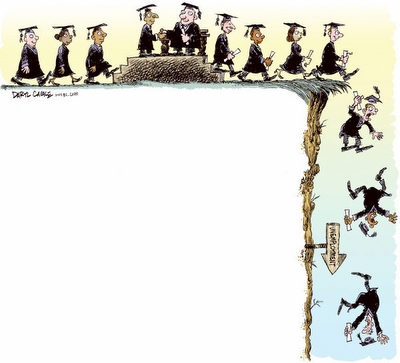You are here: The Observer
| Some Young People Find Education is Not the Road to Success March 23, 2010 - Natalie Revela |
|
 |
Kosmas Memmos, 28, is closing up his car shop in Halandri for the day. He turns the alarm on and we are ready to go. Kosmas opened Pit Stop Center – where you can change tires and brake pads and get your suspension fixed – in 2006. |
Although most high school graduates dream of an office job, and many parents insist that their child gets a degree of some kind, neither Kosmas nor his family cared for the traditional route. Over the last several decades, Greek parents have pushed their children into attending universities in Greece or foreign countries. They often spend their family savings to get a degree from a public or private university – in Greece or abroad – or from a low entrance-level Greek technical school, or TEI, which offers graduates little hope of finding a job in the field they have studied. Graduates often end up with jobs they didn’t need a degree for in the first place. Kosmas, however, decided to take a different path. He finished high school, started working and learned his trade well. After he finished his army service he decided to take the big step and open his own garage. He got a government grant as a young businessman, which covered 55 percent of the budget. He also got a small loan from a bank; family savings covered the rest of his outlay. “I couldn’t have done anything without the full support of my parents,” said Kostmas. I feel lucky that I was never pressured to do anything that I don’t want to.” Kosmas uses online advertising and social networks to drum up business; he also sponsors cars in races all over Greece. “It’s good advertising because the races are popular and plus we have fun working at the pits,” he explained. Not everyone takes Kosmas’s route. Many high school graduates end up studying at a TEI of no interest to them, only because of parental pressure. Nikos Karalis, a graduate of the Mesolongi TEI fish farming program, never saw himself working with fish. “I finished my degree mostly because I did not want to disappoint my parents,” he said. According to a study by TEI Ipirou, 52 percent of TEI students get their degree in four years; the average time to graduation is around five years. Karalis finished his four-year degree in 5.5 years, which is considered normal for the TEI course in fish farming. “I stayed in Mesologgi for 5.5 years and my parents sent me more than 500E per month to cover everything,” he said. And the result? Karalis, 28, now works in a supermarket. He doesn’t like thinking of the future much because he feels pressure. He belongs to a group of people who face a similar problem: studies that lead nowhere. The TEI Ipirou study shows that 23 percent of TEI graduates cannot find a job related to their degree for more than two years after graduation. Fifty-six of the survey respondents said they cannot find a job simply because there aren’t any: unemployment is high in their respective fields. Families spend a lot of money to get their children through their education, with perhaps no consideration of the future and what the acquired degree will offer. The money that they spend on rents and other bills associated with study could be saved and invested in the future more productively. The dream of getting a diploma that leads to an office job can crowd out the picture of reality: people with diplomas but no jobs. Fear of taking risks in a difficult economic environment may also factor into people’s decision to pursue degrees without considering the employment prospects after graduation day. But for Kosmas, bucking the trend paid off. “I never actually thought of this as a risk, but rather as an opportunity,” he said. “When I opened the shop, I was 24, and if it hadn’t worked out I would have done something else.” Today, Kosmas enjoys his job working on cars. But Nikos, who studied something he had no interest in, has yet to find his path: “I am doing this job for the money, it’s not a passion. Not that I would enjoy working in a fish-farming job, of course.” It may be better for high school graduates to make decisions about the future based on their needs and desires rather than their parents’ concerns. Not all people can do the same things in life, and sometimes not taking the traditional route can be better. It is now 6 pm, and Kosmas is ready to go home. The phone rings. His younger brother is waiting for him at a coffee house where they will have a beer. Kosmas plans to open another Pit Stop Center with his brother soon. |
|
